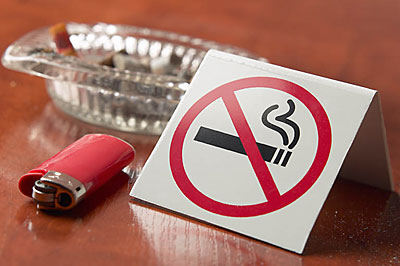Filter Cigarettes Don’t Lessen Damage Caused to Oral Health
Published:February 27th, 2013 National No Smoking Day takes place on March 13th, and it’s hoped a new campaign by the Department of Health will encourage more people to quit. Although many people want to stop smoking because they are concerned about the risks of developing lung cancer, wanting to kick the habit for oral health reasons is equally valid and important.
National No Smoking Day takes place on March 13th, and it’s hoped a new campaign by the Department of Health will encourage more people to quit. Although many people want to stop smoking because they are concerned about the risks of developing lung cancer, wanting to kick the habit for oral health reasons is equally valid and important.
Smoking Greatly Increases the Risk of Oral Cancer
Research has shown smoking filtered cigarettes doesn’t reduce the harmful effects caused by tobacco, and one of the most prevalent risks is that of oral cancer. A study showed that the number of cases of oral cancer was exactly the same regardless of whether filtered or unfiltered cigarettes were smoked. Tobacco use is considered to be one of the major causes of oral cancer, yet many people believe smoking filtered cigarettes somehow gives them protection against this and other smoking related illnesses.
Quitting smoking can be pretty difficult, and it is estimated 20% of those trying to kick the habit will continue smoking. The British Dental Health Foundation is trying to raise awareness of the need to stop smoking and holds an annual mouth cancer campaign each November. It is lobbying for cigarettes have plain packaging, but is also warning of the additional factors that can increase the risk of oral cancer. These include having a poor diet, drinking to excess, and being exposed to the human papilloma virus.
Smokers are more at Risk of Developing Gum Disease
One of the other risks involved in tobacco usage is that of gum disease. This condition is estimated to affect most of the population at some stage or another, and smokers are far more likely to go on to develop a more serious form of gum disease, called periodontal disease. In fact some researchers think smoking may be responsible for more than half the cases of gum disease, and smokers are approximately four times as likely as non-smokers to have advanced gum disease. The good news is that quitting the habit should lead to this risk gradually diminishing.
The reason why smoking increases the risks lies in the fact that the habit constricts the capillaries responsible for carrying nutrients and oxygen to the gum tissues, and waste products away from the gums. Periodontal disease is caused by toxins produced by plaque bacteria that create an inflammatory response in the body. The immune system of a healthy non-smoker’s body will react to this inflammation by producing antibodies to fight back. This requires the supply of nutrients and oxygen to the damaged gum tissues, something that cannot be achieved if the capillaries have been constricted by tobacco usage. The lack of nutrients interrupts the healing process, allowing the inflammation to progress more easily.
Smoking Discolours Teeth
The effects of gum disease on general health are well documented, but in addition smokers are more likely to have discoloured teeth. A nice white smile is often regarded as being a sign of good health, and while teeth whitening will temporarily brighten up the smile of a smoker, the effects will quickly be lost if they choose to continue with their habit. Although good health may be a far more compelling reason for quitting, having nicotine stained teeth and bad breath can be reason enough. In addition, kicking the habit can save a lot of money these days, giving former smokers more cash to spend on restoring their smile to its former glory.
About the author
 Alison, is a UK born and educated dental professional with over 25 years experience.
Alison, is a UK born and educated dental professional with over 25 years experience.





Write a Comment of Filter Cigarettes Don’t Lessen Damage Caused to Oral Health